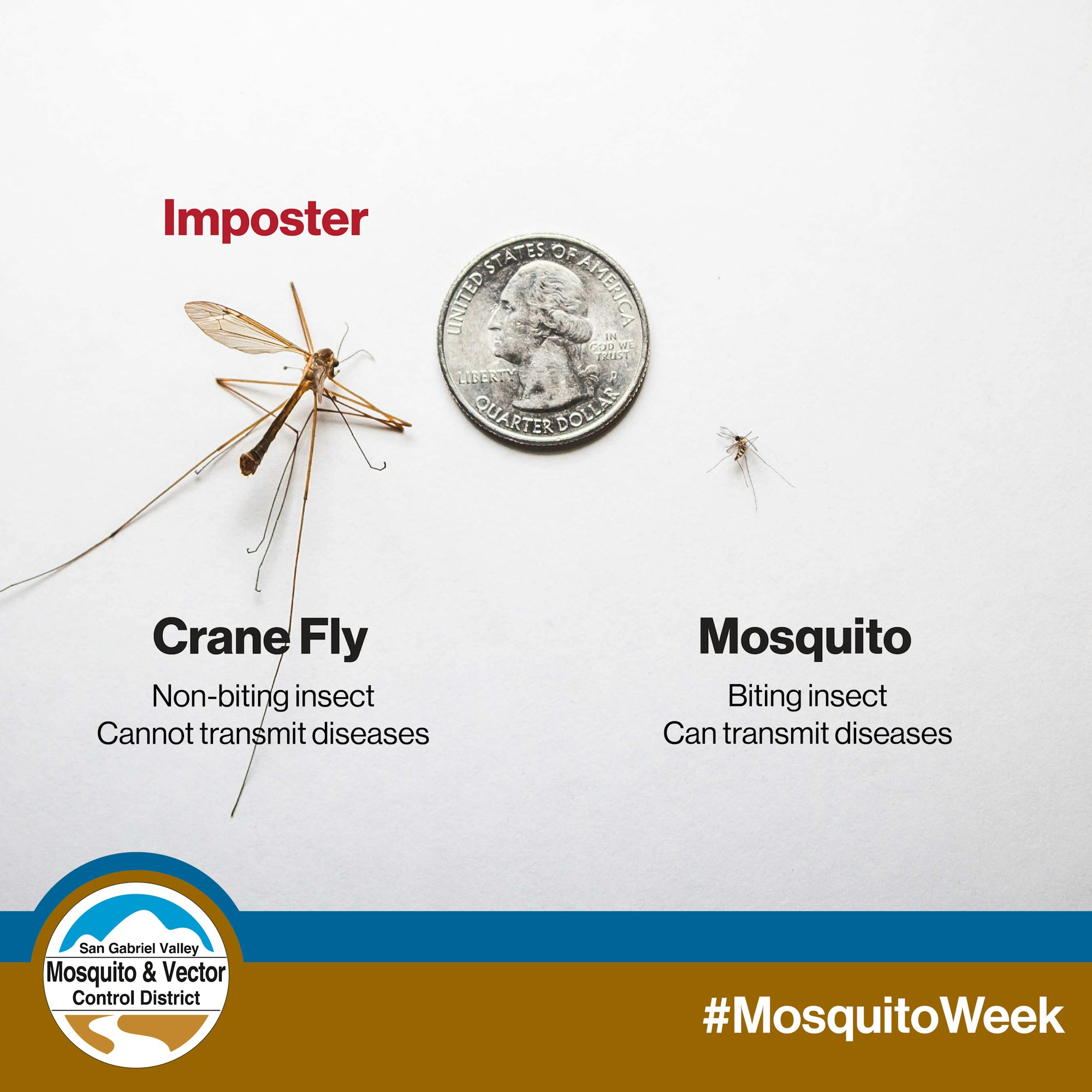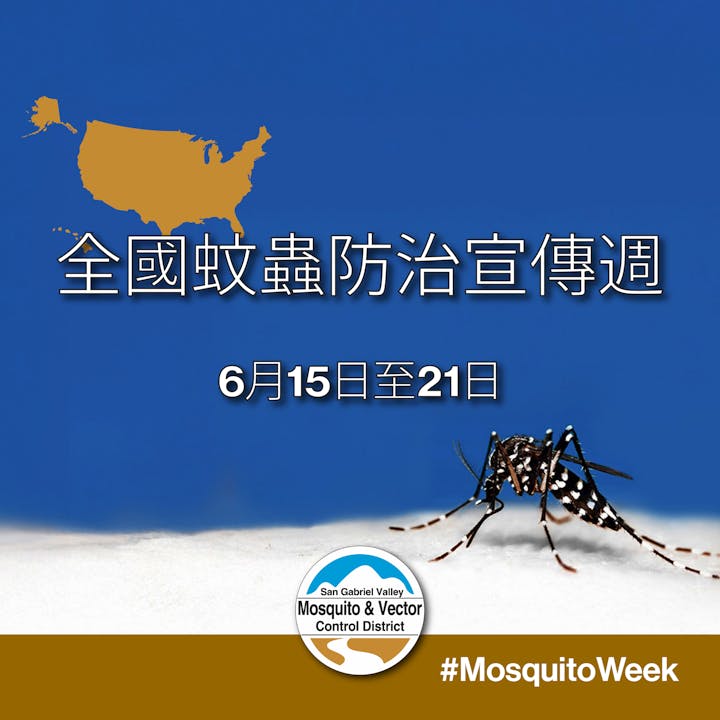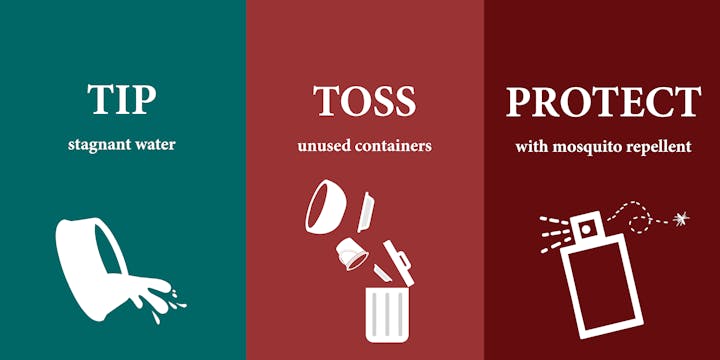National Mosquito Control Awareness Week

Sharks get a whole week of programming, but why don't mosquitoes?
Mosquito Control is a Shared Responsibility
To raise awareness and educate the public on the health threats mosquitoes pose to our communities, the American Mosquito Control Association declared June 15 - 21 National Mosquito Control Awareness Week.
Let's Get Social: Feel free to Right-click > download or Share any of the images on this page.
Why Mosquitoes?
Mosquitoes are the deadliest creature on the planet. They are found on every continent except Antarctica. They thrive in diverse environments and are capable of adapting to different climatic conditions, making them a global concern. Mosquito-borne diseases collectively affect millions of people worldwide every year, causing significant morbidity and mortality.

Vector-borne Diseases
West Nile virus is the biggest threat to people living in Los Angeles County, including residents in San Gabriel Valley. It is a mosquito-borne virus that has been detected in California since 2003. WNV is primarily transmitted to humans through the bite of infected mosquitoes. Mosquitoes become infected after feeding on infected birds that carry the virus.
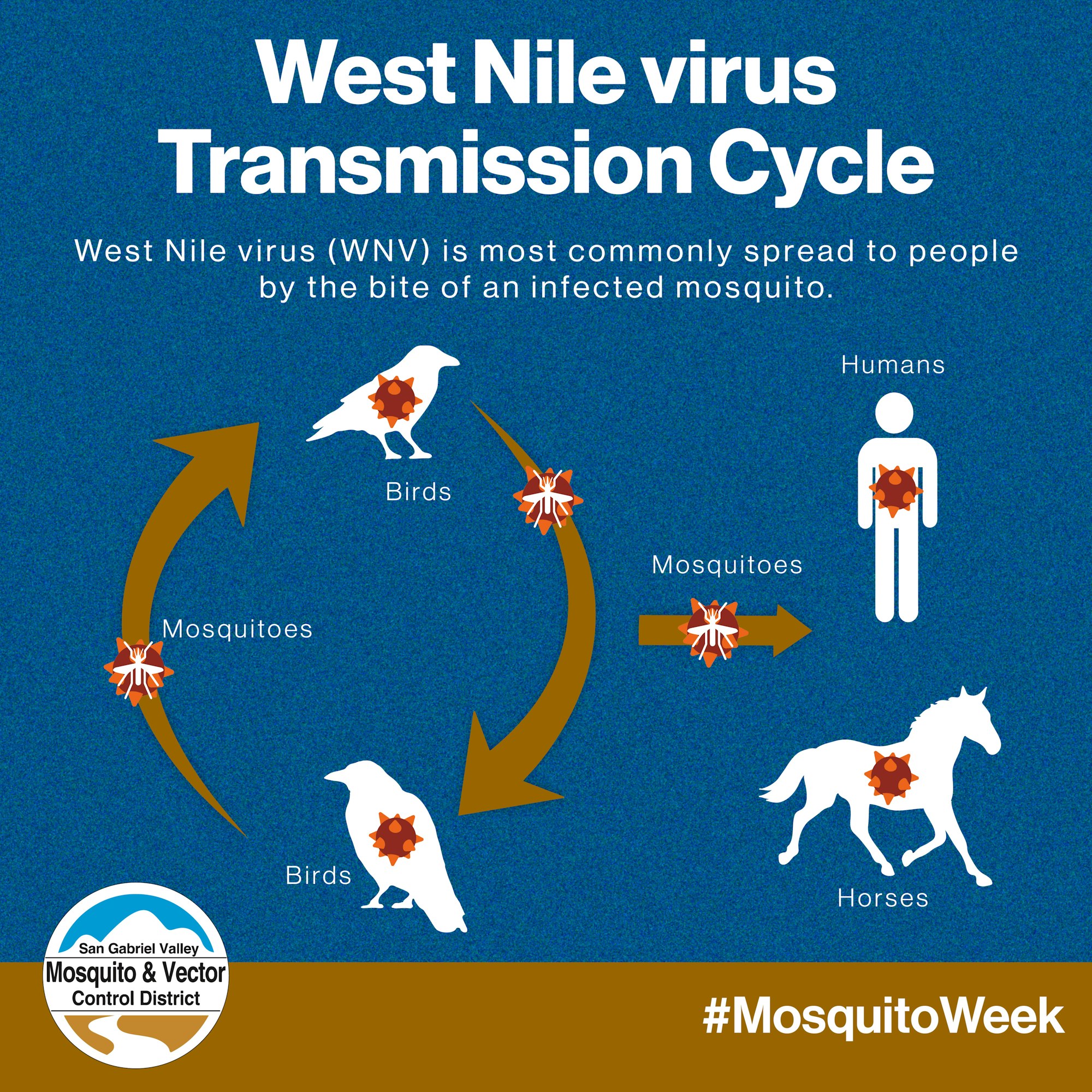
Repel, Don't Swell
Mosquitoes have been around since the dinosaurs, and they will continue to thrive on our planet. One way to keep them from biting is to wear mosquito repellent that works.
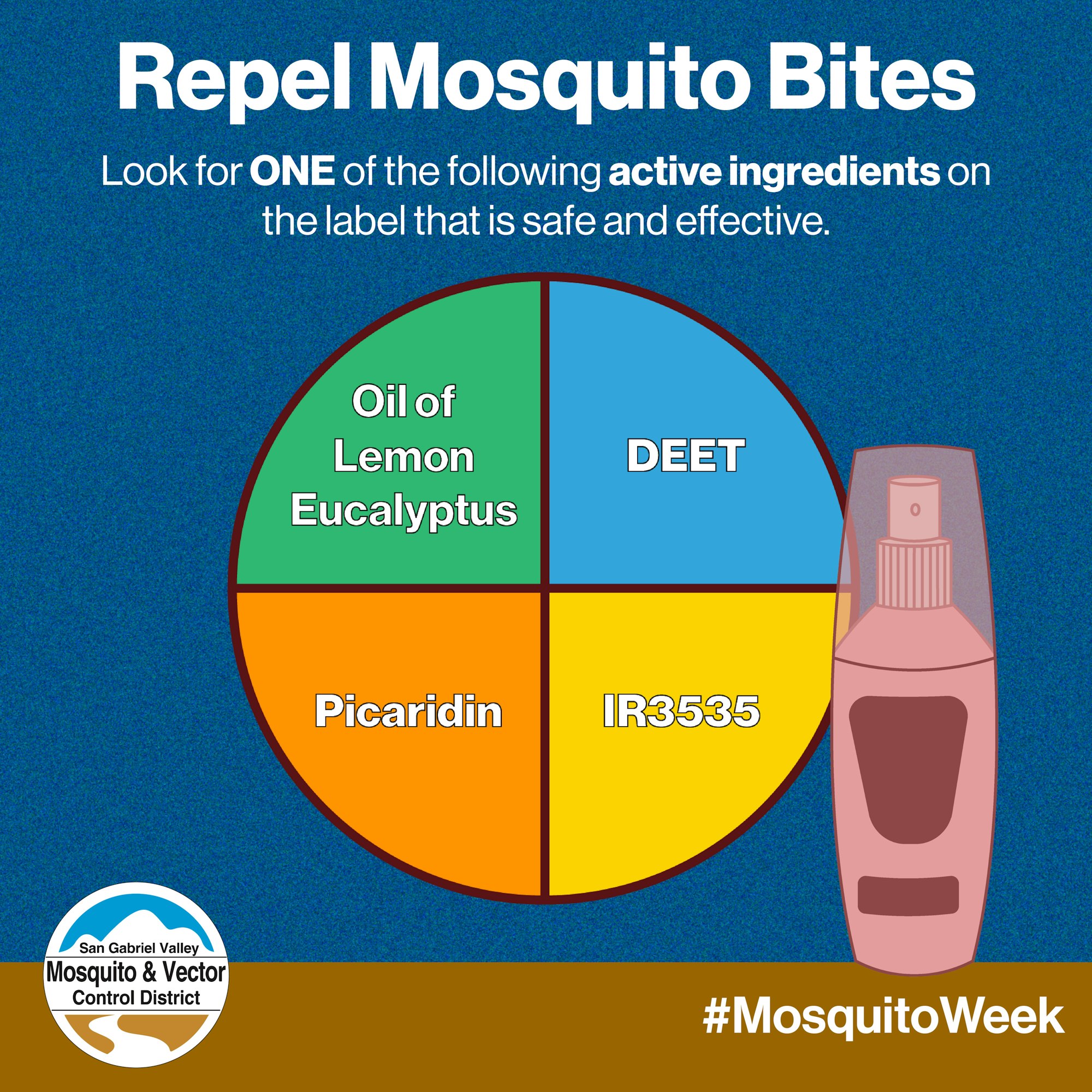
It's all about the Water
Mosquitoes lay their eggs using any stagnant water they can find in your backyard or patio.
Water around your home should be used as soon as possible. Even a teaspoon of water can attract mosquitoes!
It is recommended to TIP out stagnant water weekly and TOSS out unused containers, or store them in a dry covered area. Even a teaspoon of water can attract mosquitoes!
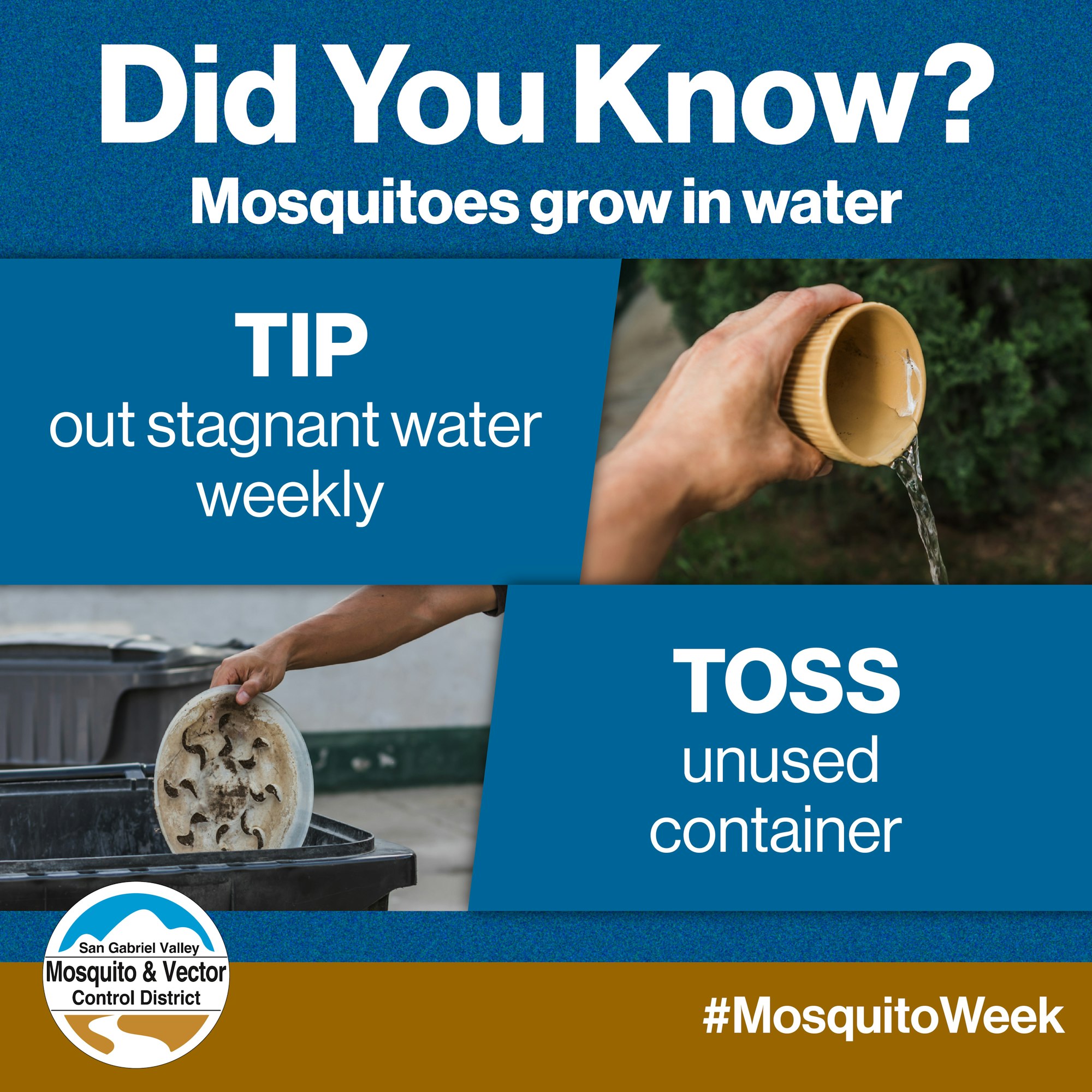
What is Sterile Insect Technique (S.I.T.)?
Sterile male mosquitoes (male mosquitoes do not bite) are released to match with wild females. When they MATCH, their eggs don’t hatch. This reduces the mosquito population over time.
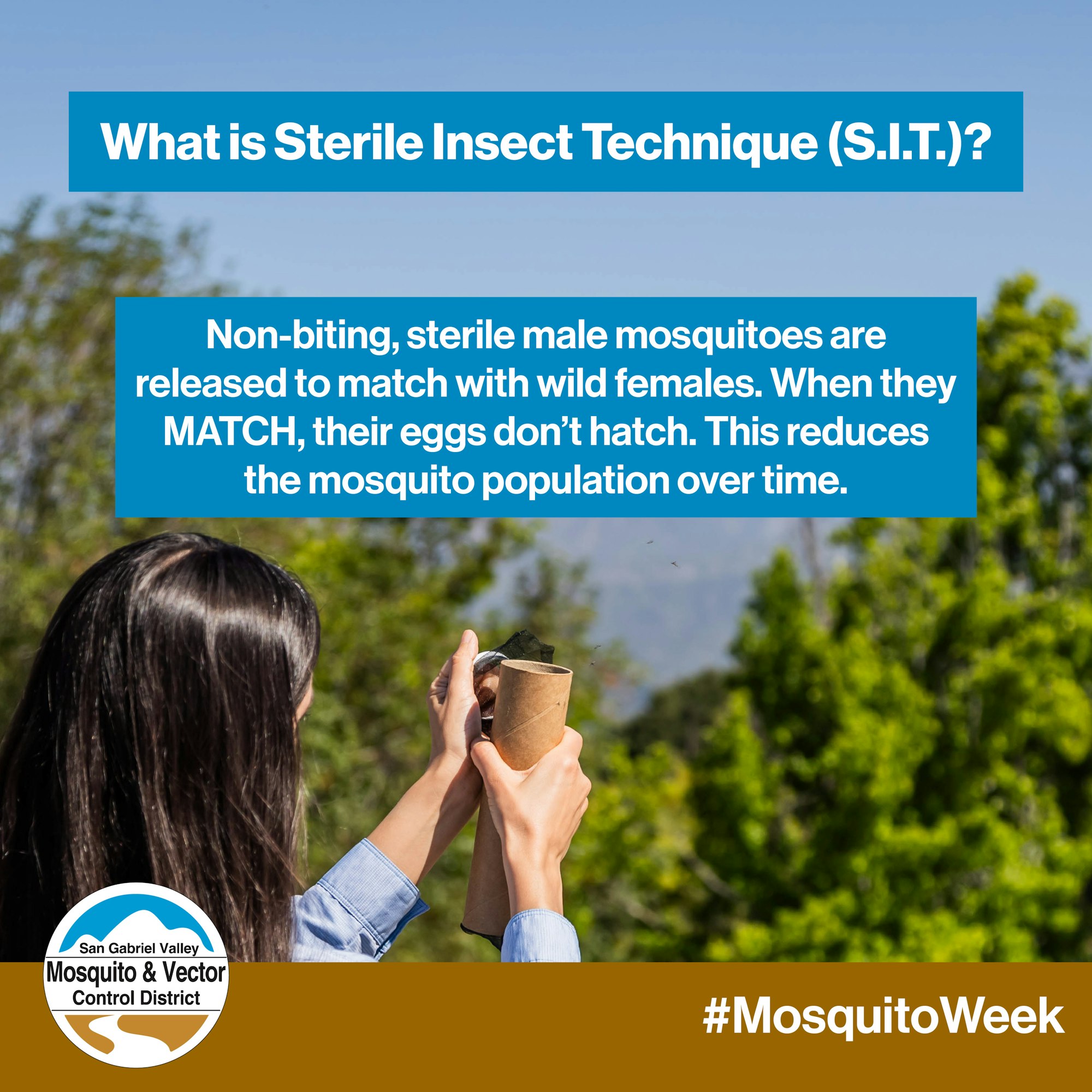
Don't Be Fooled
Many insects look like mosquitoes, but they are not! Don’t let crane flies bug you. These “Imposters” are harmless, have short lifespans, and will usually go away in a couple of weeks.
